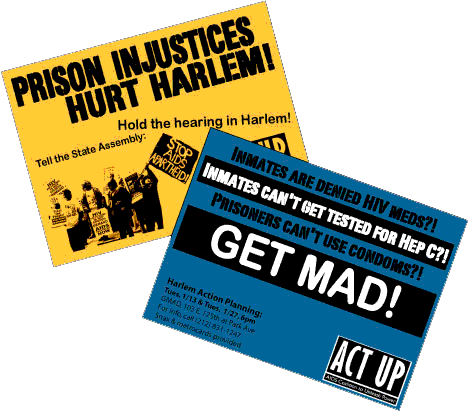HIV and the U.S.-led war on drugs
Last week, thousands of scientists, physicians and activists fighting the HIV and AIDS pandemic around the world gathered in Vienna to discuss the latest breakthroughs — and frustrations.
There were reports on several landmark studies describing the crucial role that treatments can play in reducing the infectiousness of HIV-positive individuals. And there was encouraging news from Africa, where a study found that an intra-vaginal anti-viral gel could reduce the risk of HIV infection among women who used it by 40 percent.
But there was also sobering news at the 18th International AIDS Conference, including stark evidence of how the HIV epidemic is raging unchecked among some populations of illicit drug users.
Vienna was selected to host the biannual meeting of HIV experts because it is the gateway to one of the world's most rapidly growing HIV epidemics: that among heroin users in Eastern Europe. Outside sub-Saharan Africa, about one in three new HIV infections stems from injecting illegal drugs, and in some parts of Eastern Europe and Central Asia, 70 percent of those who inject illicit drugs are infected with the virus.
In response to these alarming statistics, this year's conference endorsed as its official statement the Vienna Declaration, a document I helped draft to draw widespread attention to how the U.S.-led war on drugs has played a central role in driving the HIV epidemic around the world.
Writing in the medical journal the Lancet, where the Vienna Declaration was also published, Michel Sidibe, the executive director of the Joint United Nations Program on HIV/AIDS (UNAIDS) and other prominent scientific leaders stated the situation succinctly: "The war on drugs has failed."
Criminalizing drug abuse drives addicts deeper underground and into the kinds of unsafe practices such as needle-sharing that spread infection. We have seen clearly that countries with the most draconian drug laws also have the highest rates of HIV infection among users.
In Russia, for example, where one in 100 adults is now estimated to be HIV-infected, a fierce drug war has outlawed basic harm reduction tools, such as methadone maintenance treatment. Methadone is on the World Health Organization's list of essential medicines, but Russian physicians cannot even openly discuss the need to prescribe the treatment without fear of reprisals.
The mass incarceration of drug users is particularly alarming, given the spread of HIV in prisons. A Pew Trusts analysis of U.S. Department of Justice data noted that one in nine black males age 20 to 34 is in prison, many of them as a result of drug law enforcement.
Given the link between prisons and HIV, it is not surprising that in places such as Washington more than 80 percent of HIV cases identified between 2001 and 2006 were among blacks.
Beyond HIV and AIDS, the declaration also notes that the war on drugs is ineffective.
"National and international drug surveillance systems have demonstrated a general pattern of falling drug prices and increasing drug purity — despite massive investments in drug law enforcement." In just a few short weeks since being made public, the Vienna Declaration has been endorsed by more than 13,600 individuals, including five Nobel laureates and various other global leaders in science, medicine and public health.
There also have been signs that the world may be heading toward more reasoned drug policies. Just before the Vienna conference, the Obama administration announced overdue and welcome steps to help fight the HIV epidemic among drug users. Most important, given the strong support for syringe exchange programs from the U.S. Institute of Medicine and WHO, the administration has reversed a longtime ban on funding clean syringe programs.
But there is still much that needs to be done. The Vienna Declaration calls for governments to "implement and evaluate a science-based public health approach to address the individual and community harms stemming from illicit drug use."
Not surprisingly, considering that strident special-interest groups have long misled U.S. voters into believing that the drug war is an essential crime-reduction tool, most government delegations at AIDS 2010, including the U.S. government delegation, remained largely silent on the Vienna Declaration.
Decades of worldwide drug-related violence have made clear that drug prohibition enriches organized crime and causes bloodshed. But the devastating public health consequences of the drug war have been less recognized, and government acknowledgement of the link between the war on drugs and the HIV epidemic is urgently needed. The next International AIDS Conference will be in Washington in 2012. Before that meeting, governments around the world will be asked to state a formal position regarding the declaration.
In the meantime, the declaration also asks for several noncontroversial steps, including that governments "undertake a transparent review of the effectiveness of current drug policies." Given the international public health emergency presented by HIV among drug users and the estimated $2.5 trillion in tax dollars wasted on the drug war over the last 40 years, the U.S. should move forward with this simple call.
——— ABOUT THE WRITER Evan Wood, a physician and associate professor of medicine at the University of British Columbia, directs the Urban Health Research Initiative at the BC Centre for Excellence in HIV/AIDS. He wrote this for the Los Angeles Times.

































No comments:
Post a Comment